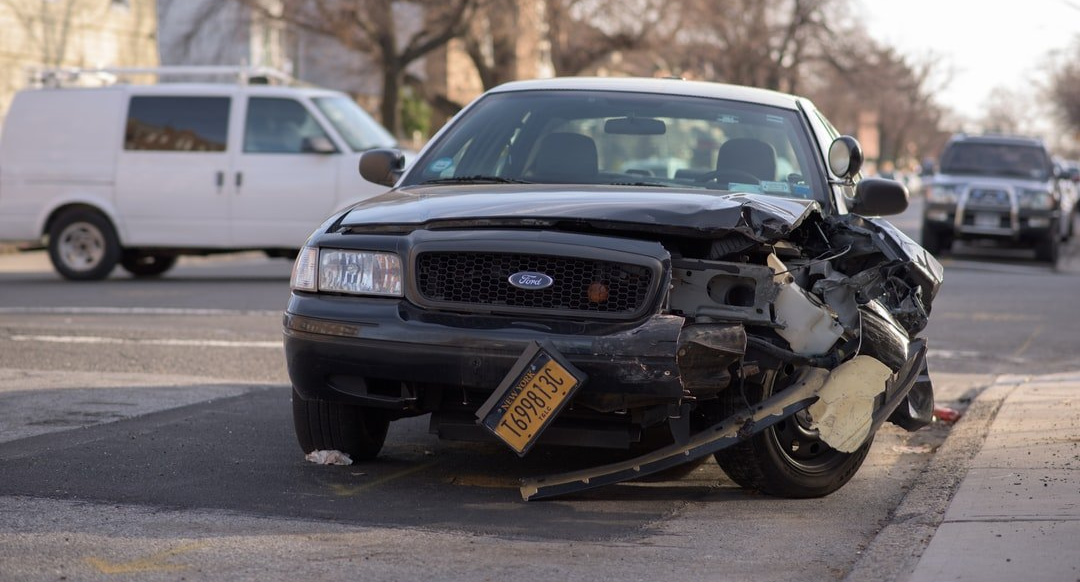One Bite Rule for Dog Bites in Texas
The Texas One Bite Dog Rule: A Legal Puzzle That Every Texan Should Understand
Are you aware of the legal quagmire surrounding the Texas one bite dog rule? In the Lone Star State, the Texas one bite dog rule is a legal doctrine that governs dog bite cases. Under this rule, a dog owner may not be held liable for their dog’s first bite unless they have prior knowledge of the dog’s dangerous propensity.
This means that if a dog bites someone for the first time, the owner may escape legal consequences unless it can be proven that they were aware of their pet’s aggressive tendencies. Understanding the nuances of the Texas one bite dog rule is crucial in cases involving dog attacks, as it can greatly impact the outcome of legal proceedings.
Quick Summary
Below is an overview of the key points of this blog post article.
- Texas follows the one bite dog rule, which means owners are aware of their dog’s aggressiveness after the first attack. Owners can be held liable even if their dog has never been bitten before.
- Owners can become aware of their dog’s dangerous status through previous attacks, court notices, or notifications from animal control.
- Dog owners can face criminal penalties if their negligence leads to serious injuries or death.
- Victims can file claims under strict liability or negligence per se, depending on the circumstances.
- Landlords can be held responsible if they fail to remove a known dangerous dog from their property.
- Owners can use defenses like the one bite rule not applying, the victim’s shared fault, or the victim is a trespasser.
- Texas law allows a two-year window to file a lawsuit after a dog bite incident.
- Gathering evidence of previous attacks or aggressive actions is crucial. Contacting local animal control, conducting interviews, or obtaining statements from experts can help.
- Compensation can include lost wages, pain and suffering, medical expenses, emotional distress, property damage, loss of enjoyment of life, permanent scarring or disfigurement, and wrongful death damages in severe cases.
What is the Texas One Bite Dog Rule?
In Texas, there isn’t a specific law that deals with an owner’s responsibility for their animal’s aggressive actions. Instead, Texas follows the one bite dog rule, which means that after a dog’s initial attack or biting incident, the owner is considered aware of their dog’s aggressive tendencies.
This doesn’t grant complete immunity but serves as a warning that an owner whose dog has bitten before may be considered negligent if they fail to prevent further incidents. It’s important to note that there are situations where a dog owner can be held accountable, even if their dog has never bitten anyone before.
Texas’s liability rule for dog owners also covers injuries other than bites. For instance, if a large dog knocks down a child, resulting in a broken bone, the parent may have grounds to file a claim against the dog’s owner. Understanding these legal nuances is crucial if you’re dealing with a dog-related injury in Texas.
What Are the Possible Consequences for Dog Bites in Texas?
As per Texas Health and Safety Code Section 822.005, a dog owner may be subject to felony criminal consequences if:
- Failing to properly confine the dog, leading to an unprovoked attack on someone off the owner’s property due to criminal negligence.
- Knowing the dog is labeled as a “dangerous dog” and yet the dog attacks someone outside of a secure enclosure where it should have been safely confined under Texas law.
- Either of these scenarios resulted in severe injuries or loss of life.
Can I Sue a Dog Owner for My Dog Bite in Texas?
There are two ways that a dog bite victim can file a claim.
- Strict Liability
- In certain cases, Texas courts may apply a strict liability rule when a dog is known to be vicious, dangerous, or mischievous, and its bite is a result of this known nature. If a dog has previously bitten someone, it can be labeled as dangerous, regardless of the severity of the previous bite.
- Under strict liability, if a dangerous dog causes an injury, the victim doesn’t need to prove that the owner also failed to use reasonable care to control the dog. Instead, they need to demonstrate that the dog was known to be dangerous before their injury. To seek compensation, a dog bite victim must establish the following:
- The dog has previously bitten a person or displayed aggressive behavior.
- The owner was aware of the dog’s prior behavior.
- If neither of these conditions is met, the victim cannot seek compensation under this doctrine.
- Negligence Per Se
- When someone breaks a law and their actions lead to an injury the law was meant to prevent, they can be assumed to have acted negligently. In cases of dog bites, the negligence per se doctrine applies when a dog owner violates animal control laws, like those requiring dogs to be leashed.
- To establish their case, a dog bite victim may seek assistance from a dog bite lawyer to demonstrate the following:
- A statute was violated.
- The violation resulted in the injuries.
What is the Landlord Liability Related to Texas One Bite Dog Rule?
In Texas, a landlord or landowner might be held responsible for injuries if they don’t remove a known dangerous dog from their property. For instance, if the landlord knows there’s a dog on the premises but doesn’t maintain common areas, like doors, gates, or barriers to keep the dog away from people, they could be liable.
However, it’s important to note that the injury must have happened in a common area controlled by the landlord, and the landlord must have known or should have known about the dog’s aggressive behavior.
What Are the Possible Texas Dog Owner’s Potential Defenses Against an Injury Claim?
Dog owners in Texas can use various defenses in response to a dog bite lawsuit. These defenses may include:
- The Texas One Bite Dog Rule Doesn’t Apply
- To make a claim under the Texas one bite dog rule, a victim must demonstrate that the owner was aware of the potential danger posed by their dog. If the owner effectively challenges this, strict liability won’t be applicable, and the victim can only seek damages by showing that the owner acted negligently.
- The Victim Shared Fault
- Texas employs comparative negligence, which allows the defendant to lessen or even eliminate their liability by demonstrating the victim’s contribution to the incident. When a victim shares some responsibility, their damages are reduced proportionally, and those with over 50% responsibility won’t receive compensation.
- The Victim Was a Trespasser
- Typically, Texas law holds trespassers accountable for their injuries while on someone’s property without permission. Therefore, the strict liability rule in Texas doesn’t come into play for dog bites involving trespassers.
- Instead, for a trespasser to seek compensation, they must demonstrate that the owner acted intentionally or with gross negligence, which can be a challenging burden to meet.
What is Texas’ Statute of Limitations for Dog Bite Claims?
According to Texas personal injury law, including dog bite cases, you must file a lawsuit “within two years after the cause of action arises.” In simple terms, if you’re injured, you have two years from that day to sue the dog owner. If you miss this two-year deadline, you’ll likely lose your right to hold the dog owner responsible for your injuries.
How Can I Prove Liability in My Texas Dog Bite Claim?
Just like in any personal injury lawsuit, the plaintiff needs to establish that the defendant was negligent and failed in their duty of care. In a dog attack case that leads to a successful claim, the victim must demonstrate the following:
- The dog’s owner was aware of the dog’s past aggression previous bites, or specific circumstances were present.
- The owner had a responsibility to exercise reasonable care in managing the dog’s conduct.
- Due to the owner’s negligence in fulfilling that duty, the individual suffered an injury.
To establish a case, it’s valuable to gather evidence of previous attacks or aggressive actions. This may involve reaching out to the local animal control department, conducting witness interviews, or obtaining statements from animal behavior experts.
What Damages Can I Get for My Dog Bite Claim?
You can recover the following compensation from your dog bite claim:
- Lost Wages
- In a dog bite claim, lost wages refer to the income you couldn’t earn due to your injuries. This includes missed work days, reduced working hours, or even the loss of future earning potential if the injuries are severe enough.
- Pain and Suffering
- Pain and suffering encompass the physical and emotional distress caused by the dog attack. It covers the pain, discomfort, and emotional anguish you’ve endured as a result of the incident, aiming to compensate for the non-economic aspects of your suffering.
- Medical Expenses
- Medical expenses cover all the costs associated with treating your injuries. This includes hospital bills, doctor’s fees, prescription medications, surgeries, rehabilitation, and any other necessary medical treatments arising from the dog bite.
- Emotional Distress
- Emotional distress compensation is meant to address the psychological impact of a dog bite. This includes the anxiety, fear, and trauma you may experience after the incident, which can have a significant effect on your overall well-being.
- Property Damage
- Property damage applies if the dog caused harm to your personal belongings during the attack. For instance, if the dog damaged your clothing, personal items, or even your vehicle, you may be entitled to compensation for these losses.
- Loss of Enjoyment of Life
- Loss of enjoyment of life compensation acknowledges that a dog bite can significantly diminish your quality of life. It accounts for the inability to participate in activities and hobbies you once enjoyed due to the injuries.
- Permanent Scarring or Disfigurement
- If a dog bite results in lasting physical scars or disfigurement, you may be eligible for compensation to address the permanent changes to your appearance, as well as the emotional distress that may accompany it.
- Wrongful Death Damages
- In tragic cases where a dog bite leads to the death of a loved one, wrongful death damages are available to compensate the surviving family members for their loss. This can include funeral expenses, loss of financial support, and the emotional toll of losing a family member.
Trusted Legal Assistance for Dog Bite Cases in Texas
Navigating the complexities of the Texas one bite dog rule can be a challenging task. Understanding the legal implications and knowing your rights as a dog owner or as a victim of a dog bite is essential. If you find yourself in need of legal assistance regarding the Texas one bite dog rule or any other legal matter, Leeds Law Firm is here to help.
At Leeds Law Firm, we pride ourselves on our experience in various areas of law, including personal injury cases related to dog bites. Our team of lawyers is dedicated to providing you with the support and guidance you need to ensure that your rights are protected and that you receive the compensation you deserve.
We can also represent you in Bicycle Accidents, Big Rig Accidents, and Car Accidents. Don’t hesitate to reach out to us for a free consultation and let us assist you in your legal journey. Your peace of mind is our priority.













